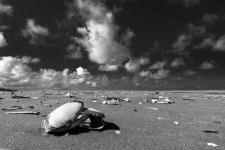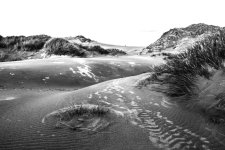- Messages
- 130
- Name
- Richard Toulson
- Edit My Images
- No
Can I pick the brains of my learned friends please.
Aside from the super expensive cameras, do you know of any that might be affordable, sub £200 say?
I don't mind how far back in time you go, but it has to be digital and predominantly for black and white. I'm thinking Ricoh GR/mkII, but they don't come around very often nor is it exclusively B&W.
I just fancy playing with a basic or simple camera. Can anyone think of cameras I should look out for please?
Thank you.
Aside from the super expensive cameras, do you know of any that might be affordable, sub £200 say?
I don't mind how far back in time you go, but it has to be digital and predominantly for black and white. I'm thinking Ricoh GR/mkII, but they don't come around very often nor is it exclusively B&W.
I just fancy playing with a basic or simple camera. Can anyone think of cameras I should look out for please?
Thank you.


